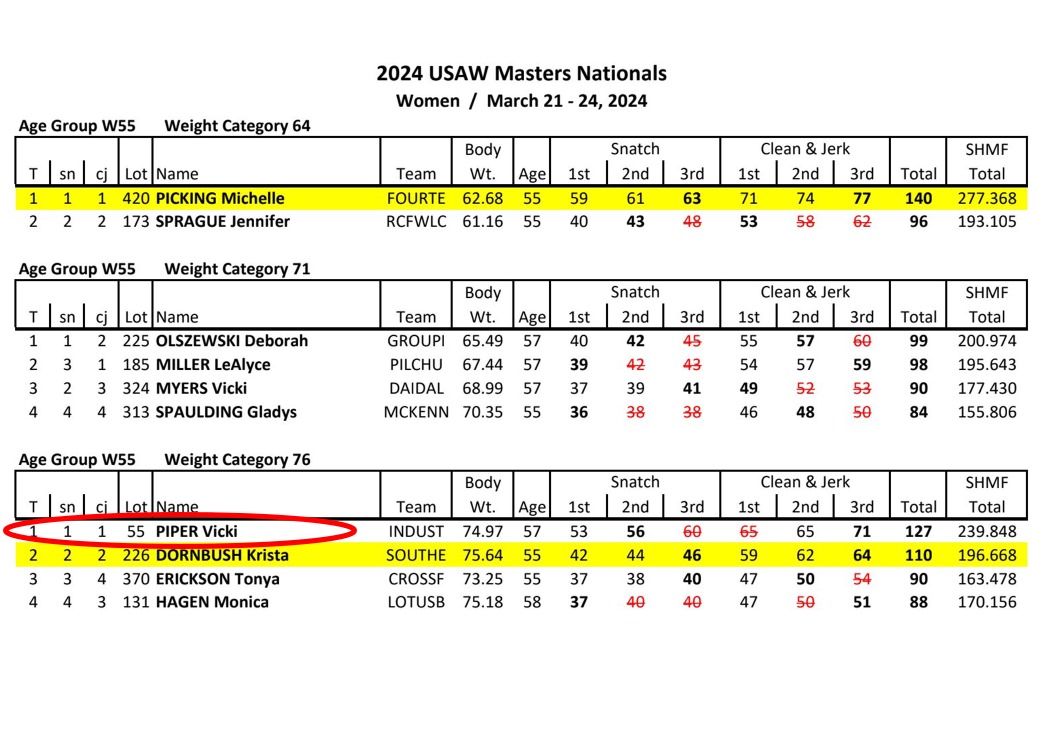Recently, a male athlete emerged victorious over female competitors in a recent weightlifting championship.
The outcome of the Masters National Weightlifting Championships held in Reno, Nevada, has sparked controversy. It highlighted the ongoing debate surrounding transgender participation in sports.
Men and women competed in separate divisions, for the most part.
However, weightlifter Vicki Piper won in one particular division. The incident was reported by the Libs of TikTok account.
The only issue is that Vicki Piper is a man by birth. Additionally, images from the event highlight how glaringly visible the physical differences between the male and female competitors in the division are.
Sadly, women will continue to lose against transgender athletes in far too many sports due to the cowardice of administrators, organizers, and decision-makers. Unless they decline to take part.
Athletes like Riley Gaines have been vocal in their opposition to the inclusion of transgender competitors in women’s sports. Calls for greater transparency in athlete classification and stricter regulations regarding eligibility have become increasingly prevalent within the sporting community.
Piper’s enormous winning margin was more absurd due to the difference in scoring between weightlifting sports for men and women.
The Sinclair-Meltzer-Faber (SMF) standard applies to males, whilst the Sinclair–Huebner–Meltzer–Faber (SHMF) standard applies to females. Because weightlifters have varying biological capabilities, they should be classified according to their biological categories.
Research has shown striking disparities in the two genders’ weightlifting abilities.
It seems that the organizers may preserve their political and ideological purity at the expense of competitive fairness. As long as they allow this to continue, women will continue to pay the price.
Moving forward, achieving a balance between inclusivity and fair competition will require thoughtful consideration and proactive measures. By fostering open dialogue, engaging stakeholders, and implementing evidence-based policies, the sporting community can work towards creating a more equitable and inclusive environment for all athletes.

